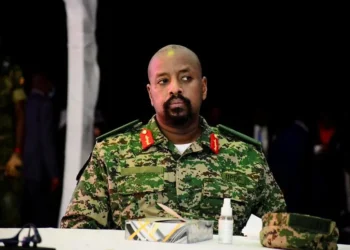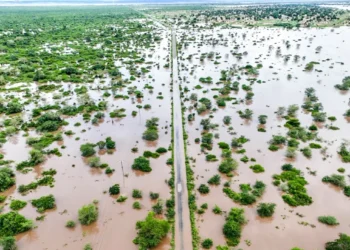Burundi’s president, Evariste Ndayishimiye, launched a women-focused investment and development bank (BIDF) last Thursday.
The bank is located in Gitega, the new political capital of Burundi, the Burundi public radio announced.
Shareholders of the bank are Burundi government and local authorities, with shares of 15% and 85% respectively.
The share capital has not yet been specified.
The other banking institution recently created in the country was dedicated to the youth.
The Banque d’Investissement pour les Jeunes (BIJE) is supposed to charge favourable interest rates of 7%, compared to 12-20% elsewhere.
The initial capital of BIJE was set at 10 billion Burundian francs (US$5 million), with 15% state participation, compared to 85% from the communes.
Overall, data from the Central Bank shows that twice as many men as women have an account in Burundi.
Among young people, 18- to 29-year-olds are also half as likely as those over 30 to have a bank account.
Moreover, the rate of account ownership has reached 89.5% among government employees, 52.1% among private-sector employees, 30.1% among traders and 5.3% among farmers.
The main obstacle to opening a bank account in Burundi is poverty, with only 12.5% of the adult population or about 480,000 people, having an account.
More than 3.3 million people are excluded.
Interest rates are also prohibitive in the Burundian banking sector.
They are generally in the range of 16% to 19% per annum.
In microfinance institutions, there are disparities in interest rates, ranging from 6% to 48% per annum.
In addition to formal financial institutions, there are informal financial systems such as credit groups and associations, tontines and money lenders.
‘Double-digit’ economic growth by 2024
Burundian President Evariste Ndayishimiye at a “retreat” of senior state officials held on Friday and Saturday in Gitega, also outlined a “double-digit” economic growth by 2024 as one of the country’s objectives .
The country’s economic growth was still at 2% in 2021, against 0.3% in 2020, while inflation was close to 7% in 2021, against 7.5% in 2020, according to data from the World Bank (WB).
The overall objective of the Gitega retreat was to discuss “promoting good governance and increasing production” to boost the national economy, which analysts say is among the weakest in the world.
The Burundian president insisted on the “obligation of results” and good collaboration with the country’s economic and financial partners to prevent budgets from being cancelled.
To this end, each state official will henceforth be bound by a “performance contract” through the signing of a “specific code of ethics”.
In addition, President Ndayishimiye recommended a better management of state investments in private companies so that they generate beneficial interests for the country.
In terms of international cooperation, a commission has been set up to study ways and means of attracting foreign investors.
At the beginning of February, the European Union (EU), Burundi’s main traditional technical and financial partner, announced the principle of lifting the sanctions imposed on the country since the 2015 electoral crisis.
The new general elections in 2020 were a cause for satisfaction for most of Burundi’s economic partners.
More than 430 million Euros had been budgeted for Burundi before the 2015 crisis jeopardised this development aid to the country over the period 2014-2020.
The United States has followed the European lead by pledging US$400 million in financial assistance over the next four years.
This American financial aid will support the development efforts of the new Burundian government.



























































